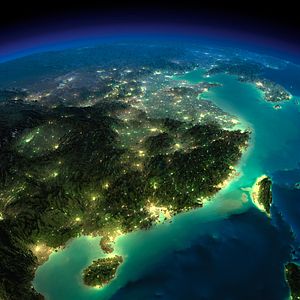When the U.S. presidential campaign comes to an end in November, the victor will face questions not only from the U.S. political establishment, but also globally from those who worry about what the next U.S. president might face beyond the borders of the United States.
The value of American traditional diplomacy is now under assault. In Asia and the Pacific there are serious concerns regarding the next president’s foreign policy proposals, which could see a radical overhaul and scaling back of U.S. engagement in the region. Experts in Washington’s foreign policy firmament have raised concerns that the next presidency would be catastrophic for Asia. It could also be catastrophic for the future of U.S. leadership in the region.
In the Asia-Pacific, China has continued raising tensions in the region. Now it is crucial that the United States provides Taiwan with the capability to defend itself against Chinese oppression. Both China and Taiwan must know that U.S. commitment to Taiwan has not wavered one bit. Taiwan is an essential U.S. ally; it is America’s friend and partner. The United States must continue to stand shoulder to shoulder with Taiwan, in the form of an ambitious strategic partnership with Taiwan and its 23 million people.
The U.S. House of Representatives on May 16 passed a resolution aimed at boosting relations with Taiwan as Congress reassured Taipei of Washington’s support. That resolution mirrors President Barack Obama and former President George W. Bush’s calculations that a strong Taiwan is in America’s interest. Republican and Democratic leaders should continue to support Taiwan, a vital partner, a democratic success story, and a force for good in the world.
Thirty-seven years ago, the U.S. Congress passed the “Taiwan Relations Act,” and began more than three decades of support for Taiwan. Taiwan’s values and achievements were brought about by special historical factors. The U.S. factor is particularly important. The people of Taiwan have built a robust, prosperous, free, and orderly society with strong institutions, worthy of emulation and envy; it is unfortunate that China doesn’t follow Taiwan’s example.
At the same time, Taiwan is a vital partner for the United States in Asia. Taiwan is critical to the United States not only because of its location, but also due to its shared values and status as a key trading partner. Taiwan is currently the United States’ ninth largest trading partner, on par with economies such as Saudi Arabia, Brazil, and India. The resilience, talents, and determination of Taiwan’s people have been appreciated in the international community, where they have been working to help showcase Taiwan’s contributions. This is a strategically significant growth area of the U.S.-Taiwan relationship.
Taiwan has shown that it has a lot to offer in the way of experience, capacity, and resources to assist with all kinds of global challenges. This is why Washington must continue to support Taiwan’s membership in international organizations where statehood is not a requirement, and encourage its meaningful participation in international organizations where its membership is not possible.
In the security area, consistent with the Taiwan Relations Act, the United States must offer a strong commitment to providing Taiwan with the defense articles and services necessary to enable it to maintain a sufficient self-defense capability. As historic progress continues to be made to improve Taiwan-China relations, Washington must ensure that Taiwan remains both a close friend to the United States and a beacon of democracy and freedom in the Asia-Pacific region.
The United States must support the improved relations across the Taiwan Strait by providing Taiwan with the confidence to pursue constructive interactions with China. Washington must stand with Taiwan in the face of tyranny and watch as its people overcame fear to live in peace. Taiwan’s inability to adequately defend itself poses a threat not just to its own security, but also to that of the United States. The United States must stands with Taiwan to ensure that it can defend itself and that its self-defense capabilities are never eroded.
Although Taiwan enjoys de facto independence, China’s ultimate goal is to annex Taiwan. Washington must not let that happen. The Taiwan Strait continues to be one of the most dangerous flashpoints on the globe, as China has been bullying Taiwan for many years now. Taiwan faces an unrelenting threat from China, which has nearly 1,600 ballistic missiles aimed at the island. The United States must realize that Taiwan needs to be reassured that it will not be abandoned.
Americans must elect a president willing to lead with strength and by example. The next U.S. president will have the opportunity to work with Republicans and Democrats alike in writing the next chapter with Taiwan. A strong America is the only path to lasting partnership between the United States and Taiwan, and beyond.
Kent Wang is a Research Fellow at the Institute for Taiwan-America Studies. He publishes frequently on the Taiwan issue in Sino-American relations, as well as other topics on East Asian international politics and regional security.

































